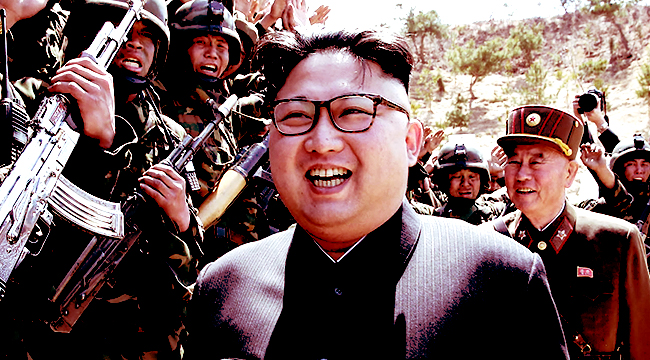
Foreign policy will test any president, and no nation is more of a thorn in the world’s geopolitical side than North Korea. The source of this animosity dates back to the very founding of North Korea, and the country has been a geopolitical problem ever since. However, after years of relative containment, diplomatic relations with the country have gotten out of hand, fast. What happened, why, and where do we go from here? Here’s a timeline of very recent events to help us better understand the accelerating situation.
- August 8th: The Washington Post reports that North Korea, which has been testing long-range missiles, has managed to build nuclear warheads that fit inside them. After the news breaks, Donald Trump verbally threatens North Korea:
“North Korea best not make any more threats to the United States. They will be met with fire and fury like the world has never seen … [Kim Jong-un] has been very threatening beyond a normal state. They will be met with fire, fury and frankly power the likes of which this world has never seen before.”
North Korea, in response, states it is “carefully examining” attacking Guam, a Pacific island part of the U.S.
- August 10th: Trump, as more word leaks of North Korea’s missile capability, publicly wonders if his threat wasn’t aggressive enough, and he doubles down with a threat that the military is “locked and loaded,” despite efforts by Secretary of State Rex Tillerson and Secretary of Defense James Mattis to defuse the situation.
- August 11th: Word leaks that U.S. and North Korean diplomats are engaged in secret talks to ease accelerating tensions.
- August 14th: In compliance with U.S. sanctions, China cuts off major North Korean imports, a major blow to the country’s economy. The next day, North Korea backs off its threat against Guam while still warning the U.S. against “dangerous reckless actions.”
- August 20th: North Korea renews threats against the U.S. over a joint military exercise between South Korea and the U.S.
- August 22nd: The Treasury Department sanctions several Chinese and Russian entities and individuals who allegedly assist with North Korea’s nuclear program.
- August 25th: North Korea tests three ballistic missiles off its east coast.
- August 28th: North Korea follows up those tests by firing a missile over a Japanese island where the U.S. military is conducting exercises. The Trump administration responds the next day by stating that “all options are on the table,” including military action. North Korea quickly responds by claiming it was planning to attack Guam all along.
- September 3rd: North Korea claims to have successfully tested a hydrogen bomb. The Trump administration responds by threatening both sanctions and military action, something Secretary Mattis backs up.
- September 12th: Despite North Korea’s threats, the U.N. passes more sanctions against the country in a U.S.-drafted resolution that caps oil exports, ends overseas labor contracts, goes after smugglers, prevents other nations from working with North Korea, and sanctions members of the North Korean government.
- September 14th: North Korea threatens to literally sink the nation of Japan with nuclear weapons and reduce the U.S. to “ashes and darkness.”
- The Future: The main question is what will happen now. Bluster and threats from North Korea are nothing new, and while everyday North Koreans may be shockingly isolated from the outside world, Kim Jong-Un, who was educated overseas, is likely aware that if an actual war breaks out, he loses.
The main question is whether this will touch off a larger war, hot or cold. But it’s worth noting that neither China nor the U.S. can really afford, quite literally, to go to war with each other.
China owns a quarter of the U.S.’ debt, and the U.S. is China’s largest trading partner. The economies of the U.S. and China are intricately connected to each other, and from there, to every other nation in the world. Any sort of disruption would lead to a global economic crash, and likely global political chaos would follow soon after. That’s an outcome nobody wants. But as long as Kim Jong-Un keeps goading, it’s on the table.
